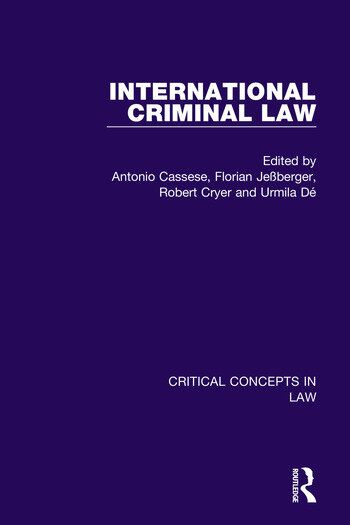We will be closed from 5pm Thursday 17th April for the Easter Bank Holidays, re-opening at 8.30am on Tuesday 22nd April. Any orders placed during this period will be processed when we re-open.

In 1993, the United Nations Security Council set up an ad hoc tribunal to bring to trial those accused of the worst breaches of humanitarian law in the war-torn former Yugoslavia, thus setting in motion a process which has significantly raised the profile and importance of international criminal justice. Whether through a proliferation of international criminal courts and tribunals, or by the many pronouncements in domestic courts on international crimes, the patchwork of disparate rules, principles, conventions, and treaties is now taking discernible shape, and a distinct corpus of law operating across diverse cultures and varied legal traditions is rapidly emerging.
Responding to these momentous developments, this new title from Routledge’s Major Works series, Critical Concepts in Law, addresses the acute need for an authoritative reference work that traces the evolution of the emerging discipline of international criminal law. The learned editors aver that now is the time to take stock and make some sense of the subject’s dauntingly vast literature, to identify a canon, and to engage with its key concepts. Selected by Antonio Cassese, the first President of the Yugoslavia Tribunal and the author of some of the most influential books on the subject, and a small team of noted scholars, this new four-volume collection assembles the best scholarship from the time of Nuremberg and Tokyo to the present day.
The volume editors have realized an ambitious aim. Not only does International Criminal Law bring together ground-breaking material sourced from a wide range of academic journals, edited collections, textbooks, and monographs, many of which are now hard to obtain, the editors also illuminate the much broader—and fundamental—issues related to impunity, guilt, restitution, and social reconciliation.
With a full index and a comprehensive introduction, International Criminal Law is an essential, authoritative, and accessible work of reference for scholar, student, and practitioner alike.